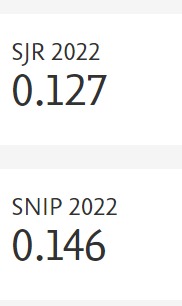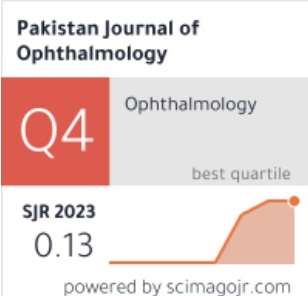Descemet Stripping Automated Endothelial Keratoplasty (DSAEK)
Doi: 10.36351/pjo.v36i2.977
DOI:
https://doi.org/10.36351/pjo.v36i2.977Keywords:
DSAEK, keratoplasty, lamellar keratoplasty, endothelial keratoplastyAbstract
Purpose: The purpose of this study to analyze the visual outcome and complications of DSAEK with their management.
Study Design: Interventional case series.
Place and Duration of Study: Department of ophthalmology Khyber Teaching Hospital Peshawar, from January 2017 to April 2019.
Material and Methods: Twenty-one patients were selected by convenient sampling method from the outpatient department of Khyber Teaching Hospital Peshawar. Informed written consent was obtained from all patients. Ethical approval of the study was obtained from institutional review board (IRB) of Khyber Medical College, in accordance with the declaration of Helsinki. All cases of DSAEK were performed by a single surgeon. We received the precut DSAEK tissue and then endoglide was used in 5 (23.8%) and Busin Glide in 16 (76.19%) of cases. The unfolding of the donor tissue was performed by preplaced anterior chamber maintainer using balance salt solution. Any complication either intra operative or post operative, which happened, were recorded and managed either medically, or by appropriate surgical means.
Results: The average visual acuity before surgery was CF-1m. After DSAEK procedure, average best-corrected visual acuity was 6/36. Per-operative complications included incomplete stripping of the Descemet membrane and loss of donor button during mounting in glide. Complications in the early post-operative period were pupillary block glaucoma in 3 eyes and donor tissue dislocation in 2eyes. Late post-operative complications included edema and non-attachment after re-bubbling, late secondary glaucoma, cystoids macular edema (CME) and interface opacification.
Conclusion: DSAEK is a promising alternative in corneal endothelial de-compensation to penetrating Keratoplasty.






